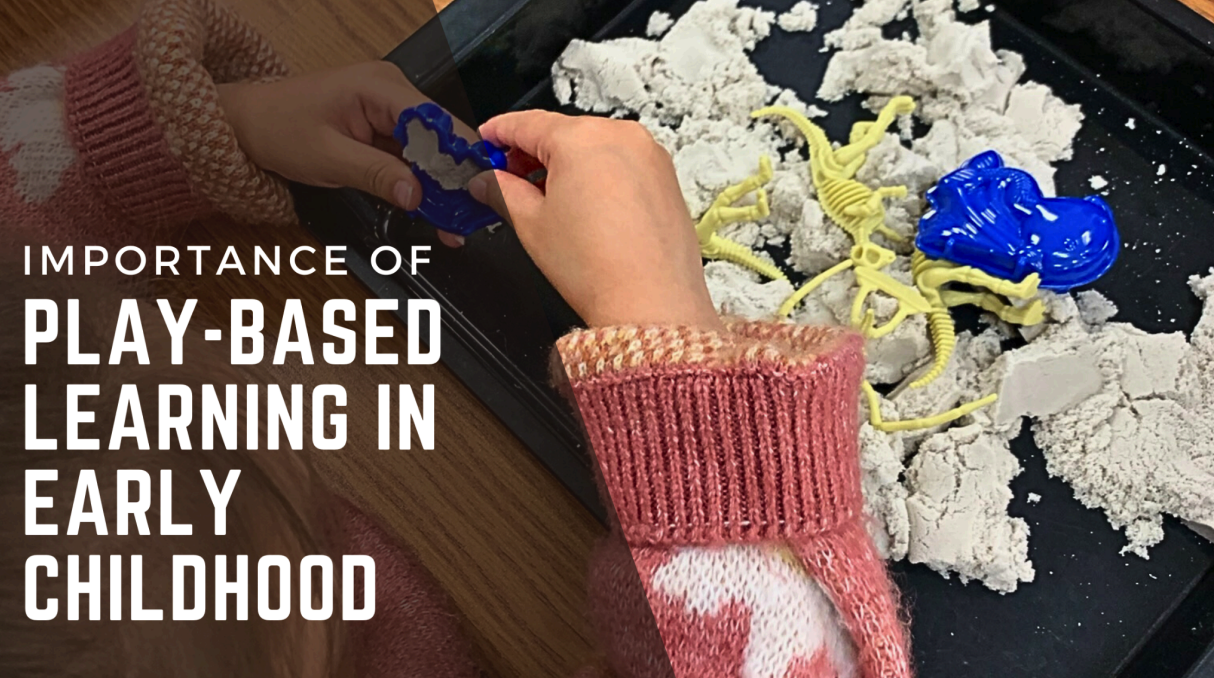The Importance of Play-Based Learning in Early Childhood
The Importance of Play-Based Learning in Early Childhood
When parents think about preschool education, they often picture structured lessons, worksheets, and memorization. However, research consistently shows that play-based learning is the most effective way for young children to develop cognitive, social, and emotional skills. At STEM Child Care, we embrace play-based learning as a core part of our curriculum, ensuring that children explore, create, and develop essential life skills while having fun.
What Is Play-Based Learning?
Play-based learning is an educational approach where children engage in meaningful, hands-on experiences that promote exploration, discovery, and problem-solving. Instead of sitting at a desk completing rote tasks, children learn through active play—building towers, pretending to be astronauts, exploring nature, or experimenting with science materials.
This method is backed by early childhood development research, which shows that play strengthens brain connections, fosters creativity, and helps children develop critical thinking skills.
Why Is Play-Based Learning So Important?
- Builds Strong Cognitive Skills
Play is not just fun—it’s essential for brain development! Activities like sorting, stacking, and building encourage problem-solving, pattern recognition, and logical reasoning. Whether a child is fitting puzzle pieces together or designing a simple machine with blocks, they are actively developing early STEM skills.
- Encourages Creativity and Imagination
Imaginative play—such as pretending to be a doctor, chef, or scientist—allows children to explore different perspectives, express ideas, and develop storytelling skills. Creative play fosters innovation and adaptability, crucial skills for lifelong learning.
- Supports Social and Emotional Growth
When children play together, they practice communication, teamwork, and emotional regulation. They learn how to take turns, resolve conflicts, and express their feelings in a safe
environment. Through play, children develop empathy and cooperation, which are key social skills for future success.
- Strengthens Motor Skills and Coordination
Physical play, such as running, climbing, and playing with manipulatives, helps children develop fine and gross motor skills. Activities like drawing, cutting with scissors, and playing with playdough strengthen hand muscles needed for writing.
- Encourages a Love for Learning
Children naturally love to play, and when learning is incorporated into play, they develop a positive attitude toward education. This approach fosters intrinsic motivation, meaning children learn because they enjoy it—not because they have to.
Examples of Play-Based Learning Activities
At STEM Child Care, we integrate play-based learning into every part of the day. Here are some examples of activities that support early childhood development:
- STEM Building Challenges: Kids use blocks, LEGOs, or recycled materials to design and build structures, encouraging engineering and problem-solving skills. ● Sensory Play: Activities like playing with sand, water tables, or kinetic sand help children explore textures and physical properties while strengthening motor skills. ● Dramatic Play Areas: Pretend kitchens, doctor’s offices, and science labs allow children to role-play real-world scenarios and expand their imagination.
- Outdoor Exploration: Nature walks, scavenger hunts, and gardening teach children about the environment while encouraging physical activity.
- Music and Movement: Dancing, playing instruments, and singing help develop coordination, rhythm, and self-expression.
How Play-Based Learning Prepares Children for Kindergarten and Beyond
Many parents worry that a play-based curriculum won’t prepare their child for kindergarten, but the opposite is true! Play-based learning builds the foundational skills needed for academic success, including:
✅ Early math skills (sorting, counting, patterns)
✅ Early literacy skills (storytelling, recognizing letters, comprehension)
✅ Problem-solving and resilience (trying different solutions when something doesn’t work)
✅ Social-emotional skills (collaboration, patience, and self-regulation)
Studies show that children who engage in play-based learning are better equipped for academic achievement, creativity, and emotional well-being in later years.
Why Choose a Play-Based Preschool Like STEM Child Care?
At STEM Child Care in Castle Rock, we blend play-based learning with a strong focus on STEM education, creating an environment where children are free to explore, invent, and develop a lifelong love for learning.
If you’re looking for a high-quality preschool that nurtures your child’s growth through play, schedule a tour today!




